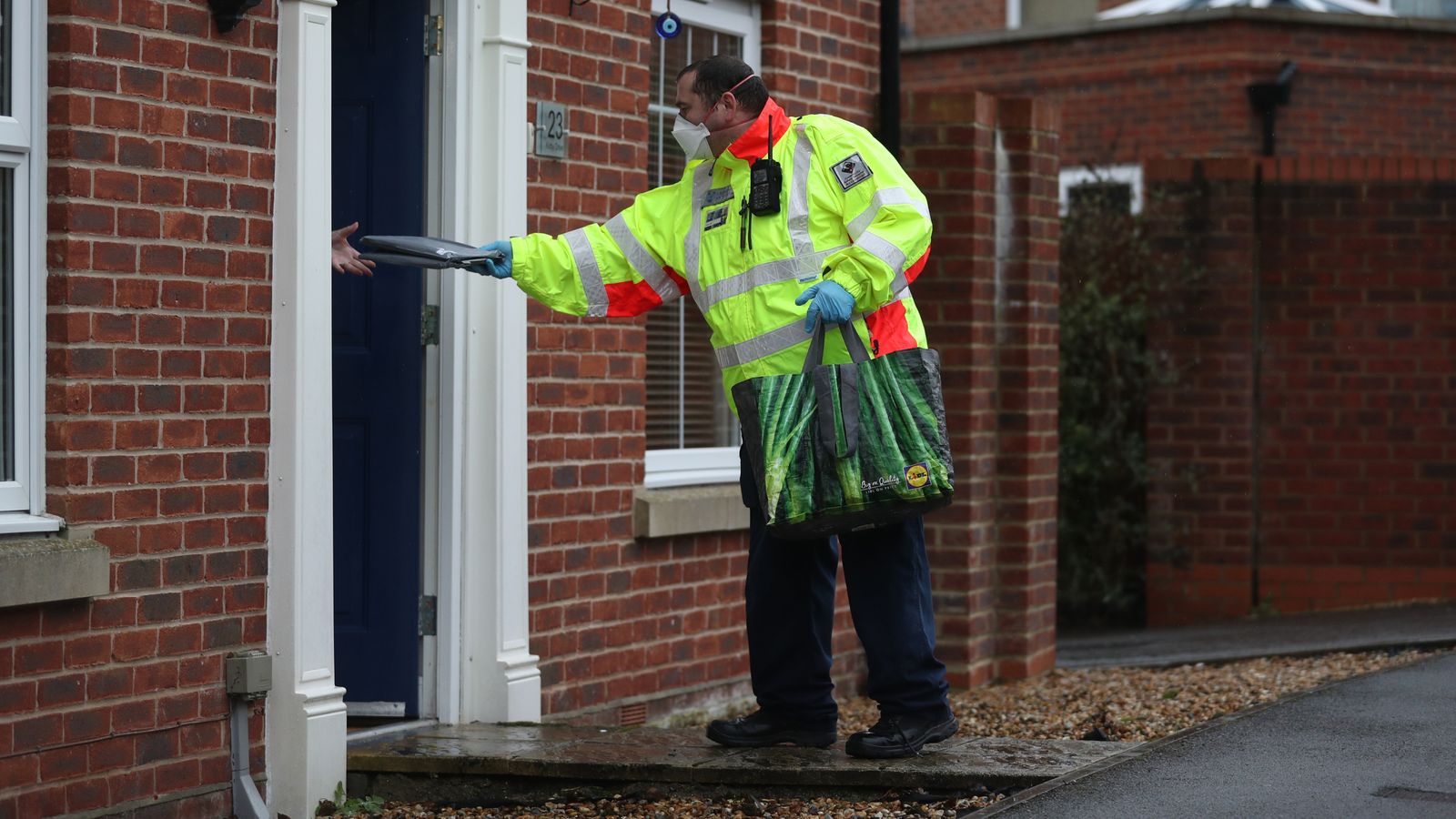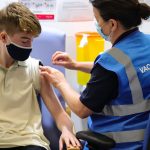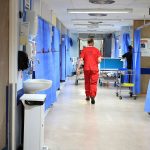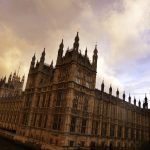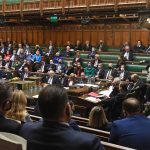Free, rapid twice-weekly COVID-19 testing for everyone in England is being promised by the government – starting this Friday.
It is aimed at people without symptoms, because one in three people with coronavirus don’t have them and may be spreading the virus unwittingly.
The government says the offer is currently for England only and the devolved administrations in Scotland, Wales and Northern Ireland will make their own decisions.
A major marketing campaign encouraging people to take up the offer of twice-weekly lateral flow tests will also start in England this Friday.
The prime minister says the tests will “stop outbreaks in their tracks”, but Labour says they need to be backed up by financial support so sick people can isolate.
The programme is effectively the long-delayed “Operation Moonshot” of 10 million COVID tests a day, costing an estimated £100bn, promised by Health Secretary Matt Hancock last summer.
When he claimed in the Commons it would start as early as December, MPs laughed, prompting Mr Hancock to brand them “nay-sayers” and saying they should “get with the programme”.
Now the government says that alongside vaccination, regular COVID-19 testing will be an essential part of easing lockdown restrictions and help quickly suppress the spread of variants.
It comes after the UK recorded its lowest number of new positive cases since September on Easter Sunday, while deaths came in at 10 for the second day running.
The total number of first vaccinations has now reached 31,523,010, while second jabs have risen to 5,381,745.
Please use Chrome browser for a more accessible video player
“Massive efforts have been made by the British public to stop the spread of the virus,” said Boris Johnson ahead of Monday’s Downing Street news conference on “vaccine passports” and “traffic lights” for international travel.
“As we continue to make good progress on our vaccine programme and with our roadmap to cautiously easing restrictions under way, regular rapid testing is even more important to make sure those efforts are not wasted.
“That’s why we’re now rolling out free rapid tests to everyone across England – helping us to stop outbreaks in their tracks, so we can get back to seeing the people we love and doing the things we enjoy.”
Please use Chrome browser for a more accessible video player
But some medical experts are sceptical.
Sian Taylor-Phillips, professor of population health at the University of Warwick, told Sky News: “We don’t know how well lateral flow tests work in terms of accuracy in people’s homes.
“So when people are doing the test unsupervised we don’t know if it will still be as effective. We know that swabbing technique is really important but we don’t know how well people can do that in their own homes.
“The really critical thing we don’t know is what effect is has on the transmission of coronavirus.
“The Liverpool pilot of this happened at the same time as lockdown (back in November), so the number of cases did go down. But we didn’t have any comparison to a no-testing area, so we really don’t know what contribution it makes or doesn’t make.”
So far, rapid testing has been available to those most at risk and people who need to leave home for work, including frontline NHS workers, care home staff and residents, and schoolchildren and their families.
Now rapid testing will be offered to everyone, with people encouraged to take regular tests to help prevent outbreaks and help the population reclaim a more normal way of life.
The government says over 100,000 businesses in England have already registered their interest to provide rapid tests to their employees.
The offer of free testing is now being expanded to companies with over 10 workers where on-site testing is impossible.
As a result, tests will be available through:
• A home ordering service, which allows people to order lateral flow tests online to be delivered to their home
• Workplace testing programmes, on-site or at home
• Community testing, offered by all local authorities
• Collection at a local PCR test sites during specific test collection time windows
• Testing on-site at schools and colleges
A new “Pharmacy Collect” service will be another option.
People over 18 without symptoms will be able to visit a participating local pharmacy and collect a box of seven rapid tests to use twice a week at home.
Announcing the programme, Mr Hancock said: “Around one in three people who have COVID-19 show no symptoms, and as we reopen society and resume parts of life we have all dearly missed, regular rapid testing is going to be fundamental in helping us quickly spot positive cases and squash any outbreaks.
“The vaccine programme has been a shot in the arm for the whole country, but reclaiming our lost freedoms and getting back to normal hinges on us all getting tested regularly.
“The British public have shown over the last year that they quickly adapt and always do what it is right in the interest of public health, and I know they will do their bit by getting tested regularly in the months ahead.”
And Dr Susan Hopkins of Public Health England said: “Rapid testing helps us find COVID-19 cases that we wouldn’t otherwise know about, helping to break chains of transmission.
“These tests are effective in detecting people that are infectious and therefore most likely to transmit infection to others. They are another tool we now have to help maintain lower infection rates.
“I encourage everyone to take up the offer of these free rapid tests – they are quick and easy to carry out in your own home.”
But Labour’s shadow health secretary Jonathan Ashworth said: “We’ve long called for mass testing for those with and without symptoms as a key element in tackling the spread of the virus.
“But to break transmission chains and suppress infections, testing must go hand-in-hand with community public health led contact tracing to find cases and must be backed up by decent financial support so sick people can isolate.
“People who are sick with COVID are still forced to choose between self-isolation or feeding their families.
“Lack of adequate sick pay and support remains a dangerous hole in our defences against this horrific virus.”
